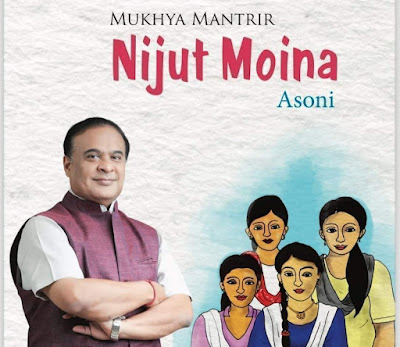Karl Marx on Marxist Thought
Introducing Marxism in International Relations Theory
What is Marxism?
Marxism is an economic and political ideology supported the ideas of the 19th century German philosopher Karl Marx.
Marxism basically means a system of classless society during which the wealth of the state are said to be distributed equally and each one the chief power of the state are vested within the labor people.
Key Concept of Marxism — The Thought Of Karl Marx —
Marxism posits that in our society the struggle which start between the social classes, specially between the bourgeoisie or capitalists class and the proletariat or workers class defines the economic relations in a capitalist economy and which will inevitably leads to revolutionary communism.
Karl Marx who becomes a Revolutionary, his theory Marxism doesn’t recognize the existence of God and NO interference of religion or culture of any kind are tolerated within the affairs of the state.
The shape of state of Marxism consists of 1 party and Single ideology which runs all the affairs of the state through its multiple organization.
The cheif executive or representative of the state are elected from within that single party and no alternative Political thought and political parties are allowed to exercised any activities.
The thoughts of Marxism was for formulated by Marx and Engels and afterward by Vladimir ilyich Lenin and Mao Tse Tung.
Marxists not only follow Marx’s teachings on economics, but also on a selection of other beliefs about morality and history.
Karl Marx – Marxism
What Are Marxism Beliefs?
The Core Beliefs of Marxism — Karl Marx in Five Core Ideas —
• Alienated Labor—
Marx’s moral critique of capitalism began along side his theory of alienation. The system of capitalism makes work become increasingly dehumanizing or “alienating,” according to Marx, because the capitalist division of labor results in worker specialization.
Such specialization, he argued, removes the workers from the last word product being created and narrows the scope of their work to alittle , seemingly meaningless aspect of production.
In return, the workers, within the Marxist worldview, become more alienated as their labor becomes less meaningful.
• Materialist Determinism—
Marx argued that ideologies are merely the results of social and economic realities. His beliefs were supported materialism , a theory that explains history because the results of fabric forces in conflict and contradiction.
Marx believed there was a natural political progression from feudalism to capitalism and then again to communism.
Marx’s materialism opined that man’s economic and social life always influenced the “thinking and feeling,”.
Marx’s beliefs about the influence material realities wear human behavior led to his theory that workers will eventually rebel against capitalism.
• Communism—
Karl Marx and Friedrick Engels wrote the “Manifesto of the Communist Party” in 1848, at a time of revolutionary turmoil in Europe.
It only reached a good readership in 1872 but became a part of the canon of the Soviet Bloc within the 20th century.
Marxists believe that the last word stage of historical political development is communism. Some Marxists insist that “real” communism has never been tried, despite the actual fact that tons of governments claimed to possess followed Marx’s ideas.
According to Michael Delahoyde, a professor at Washington State University, for a sort of government to be considered truly “communist,” the underclass — rather than the govt. or military — must collectively own the means of production.
• Class Struggle—
The history of all hitherto existing society is that the history of sophistication struggle,” says the Communist Manifesto , co-written with Engels and published in 1848.
Marx identified the class struggle only because of the central social believe in human history. He believed that capitalism would create great inequality by concentrating wealth within the hands of a few of , while making the rest of the people weak and dependent. He predicted the eventual overthrow of the capitalist class by the labor.
• Opium of The People—
Marx believed that religion, sort of a drug, helps the exploited to suppress their immediate pain and misery with pleasant illusions, to the advantage of their oppressors.
The quote usually determined as “religion is that the opium of the people” which mainly originates from the introduction of Karl Marx’s work “A Contribution to the Critique of Hegel’s Philosophy of Right”.
Religion is that the sigh of the oppressed creature, the guts of a heartless world and the soul of soulless conditions. That is why it is the opium of the people.The idea was wont to justify brutal purges of religions in Russia, China and across eastern Europe.
Some scholars means that Marx saw religion as just one of the many elements explaining the enslavement of the proletariat and should are surprised to ascertain radical atheism become a core tenet of communist regimes.
Summary of Marxist Ideology —
Karl Marx’s Preface to his A Contribution to the Critique of economics (1859) contains a summary of Marx and Engels’ materialist conception of history.
Marx comments that within the course of his studies he reached the conclusion that the rationale of social development wasn’t to be found merely within the realm of ideas but rather within the fabric conditions of life, which an accurate understanding of capitalism is to be found in economics.
Marxism is an attempt to urge obviate the disjoint between human essence and its existence. At the center of Marx’s thought is his deep concern for man and his future.
For him, human essence could also be a totality of social relationship. His central criticism of capitalism is that man was stripped of his human essence when he first fell into the category of the exploited and faced the destruction of all humanity in him under capitalism.
It is a scientific revolutionary philosophy which points the because of get obviate exploitation,oppression and injustice within the society.
In today era the Neo-Marxism is predicated on ideas initially projected by Marx . Marx believed that economic power led to political power which this is often often often the key to understanding societies.
Neo-Marxists believe the financial system creates a wealthy class of house owners and a poor class of workers. They also believe that certain social institutions like churches, prisons and schools are created to need care of the division between the powerful and thus the powerless.
• Criticisms of Marxism —
1) Marx argued that those that control the base controlled the economic superstructure – yet many of our institutions today have a minimum of relative autonomy from Bourgeois control – it’s quite obvious, for instance , that massive sections of the press are critical of the Elite and lots of popular music genre artists are extremely critical of the Capitalist system.
2) The Communist Revolutions in Eastern Europe didn’t cause greater equality and freedom as Marx would have hoped. Given the failures of communism it’s difficult to ascertain what the choice to Capitalism could be .
3) The class structure today is more complex than Bourgeois-Proletariat. In most Western Nations and increasingly in developing nations there’s an in depth bourgeoisie who have stocks and shares invested in Corporations travel by what Marxists would call the ‘Capitalist Class’.
4) Classic Marxist theory has been criticised for being economically deterministic. Marx argued that ‘economic laws’ determined not only the form of society but also the direction of history itself. However it is clearly the case that other factors shape the history too.
As we know that different societies have responded differently because of the world wide spread of Capitalism and Neo-liberalism where others have taken a social democratic line and used the state as a buffer to guard citizens from the worst excesses of Capitalist exploitation.
5) Many sociologists today would argue that Marx’s ‘grand theorising’ about the planet is not any longer relevant – instead of researching with the intention of making the right society, we should always really be focussing our attention of far more specific and localised social issues.
Conclusion —
The ideas of Marx marked a turning point in the history of socialism. Infact the history of the world was transformed by Marxism.
As of today No finest example of Marxism like of Soviet Union are often found. However, people’s Republic of China and Cuba are often said because of the instance of Marxist state.
_Thank You_



